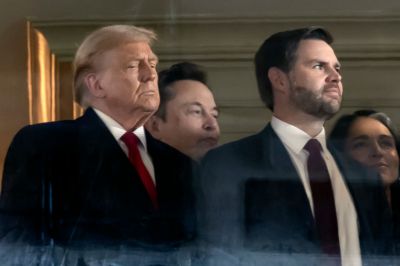On August 14, 1765, a man named Andrew Oliver was hung in effigy on the Liberty Tree in Boston. This act of colonial defiance by the Sons of Liberty symbolized the intense opposition to the Stamp Act among the colonists ("no taxation without representation"). But it also demonstrated colonial hostility to and frustration with the patronage system commonly used by royal governors of the colonies to reward friends, family, and political allies with positions of authority instead of assigning positions by merit or allowing representative bodies to fill them. You see, Andrew Oliver was the brother-in-law of Thomas Hutchison, at the time the lieutenant governor of the Massachusetts Bay Colony. (When Hutchison eventually became the royal governor, he appointed Oliver as his lieutenant governor.)
In his journal, as John Adams mused upon the mob action that followed, he voiced his frustration with the violence but also wondered, "Is not this amazing ascendancy of one family, foundation sufficient on which to erect a tyranny? Is it not enough to excite jealousies among the people?" This form of tyranny, of the appointment and ascendancy of the undeserved, would be later termed by Thomas Jefferson in a letter to Adams as an “artificial aristocracy founded on wealth and birth, without either virtue or talents.”
This corruption, this tyranny, was one of the many things the founding generation fought to, if not destroy, then at least check and balance with the auxiliary precautions of constitutional government. The Founding Fathers wanted to create a republic, a form of government “deriving … just powers from the consent of the governed” and operating “on such principles and organizing its powers in such form, as to them shall seem most likely to effect their Safety and Happiness.” In other words, a government where common consent empowers virtuous figures to exercise power for the common good, a government led “by the best, for the rest.”
This idea of government by the best is what Jefferson mused upon when considering a “natural aristocracy” whose "grounds … are virtue and talents." This idea, which today we call meritocracy, Jefferson considered “as the most precious gift of nature for the instruction, the trusts, and government of society” and further argued, “that form of government is the best which provides the most effectually for a pure selection of these natural [aristocrats] into the offices of government.”
A meritocratic government would be well-managed and run with the interests of all in mind. It would avoid the pitfalls of the artificial aristocracy, the greed, the corruption, the graft, and replace it with all the virtues of humanity working on behalf of the betterment of the whole. Jefferson, essentially, hoped that the fruits of republican government would be rule by, if not Plato's philosopher king, then a host of philosopher statesmen.
However, Adams was not so sure that such an easy distinction between the natural and artificial aristocracy existed. “Artificial Aristocracy,” claimed Adams, grew up “out of the natural Aristocracy of ‘Virtues and Talents.’” Adams argued that no one would have ever gained prominence among men absent the talents of meritocracy. Artificial aristocracy, then, is the degenerative form, even the inevitable form, of meritocracy. It is the power that the naturally virtuous achieve that can and will corrupt them.
The challenge, then, that the founding generation faced was how to enable government by the best without letting the power necessary to govern corrupt them. And the best protection the founders could determine were checks and balances and separation of powers. Or, as James Madison wrote to Adams, to establish a republic, we must first establish “proper division and distribution of power among different bodies” and then create “mutual checks by which it is to be kept within its proper limits and direction."
And how has the attempt fared? We would be remiss not to face the reality that a patronage system, or a "spoils system," has operated quite extensively from time to time throughout the history of the American republic. Indeed, it was Sen. William Marcy who first coined the phrase "to the victor belong the spoils" in observing the intense cronyism under President Andrew Jackson. (This spoils system reached its peak in 1881 when President James Garfield was assassinated by a disgruntled supporter who felt snubbed by being denied a government posting.)
But through the ups and downs of our history, the checks and balances that establish the guard rails of the American republic have, more or less, steered toward meritocracy. Madison's “auxiliary precautions” have composed the backbone of American constitutional governance and have secured and kept our republic.
This is why it can be so concerning in our day and age when the people and the people’s representatives do not give due respect to the processes that effect our checks and balances and our system of separated powers. The very basis of our constitutional order is the belief that no one should exercise power arbitrarily. Very few powers in our government can be carried out by one of our branches of government without necessary inputs from other branches of government. This is not a formality, it is the essence of a constitutional republic.
Any president will obviously desire a winner-takes-all spoils system in their efforts and appointments. There is now a long history of presidents seeking to exercise their position as de facto leaders of their political party to leverage their electoral victories toward keeping senators and representatives in line. However, the system simply cannot work as intended if those senators and representatives do not find the backbone to operate as members of an independent branch of government.
The present environment under the Trump administration is simply the latest, but perhaps most stark, example of the idea that a president has “the right to appoint his own Cabinet” with little to no real advice and consent from Congress. But we are, frankly, not going to have a republic, “a government of the best, for the rest,” if we don't engage properly in the processes that keep even the best honest and within the bounds of enumerated power. Our elected officials must do their jobs, which are to exercise their judgment independently, honestly, and with the common good in mind instead of sacrificing it to the results of any given presidential election. And the people must educate themselves toward understanding the important processes of our government. Constituents should want senators and representatives who represent their unique interests and perspectives and exercise their judgment independently. If the people are demanding rubber stamps for the president, if the people want to only elect partisan players to Congress who will toe the president’s line, then the people are going to get what they want, and what they want can and will frustrate the basis of our republic and make a mockery of the checks and balances that our forefathers fought and bled to establish for the perpetual safeguards of a free country.






Please note that we at The Dispatch hold ourselves, our work, and our commenters to a higher standard than other places on the internet. We welcome comments that foster genuine debate or discussion—including comments critical of us or our work—but responses that include ad hominem attacks on fellow Dispatch members or are intended to stoke fear and anger may be moderated.
With your membership, you only have the ability to comment on The Morning Dispatch articles. Consider upgrading to join the conversation everywhere.